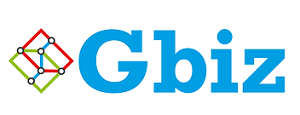
Enhancing the efficiency of revenue cycle management (RCM) and streamlining financial transactions are crucial elements for a successful healthcare practice. Technology has an increasingly important role to play in this domain. This article will examine the impact of technology on RCM and how healthcare providers can harness its benefits.
How Technology Shapes Revenue Cycle Management?
By implementing advanced software and technology, healthcare providers can greatly improve their RCM processes. There are a number of key areas where technology can make a significant difference:
- Billing and claim management: Replacing manual billing and claim processes with automation reduces errors and speeds up claim submission. Automated systems also verify patient eligibility for insurance coverage, minimize denials, and ensure accurate coding.
- Efficient scheduling: With the help of digital scheduling tools, healthcare providers can optimize appointment scheduling, manage last-minute cancellations, and proactively fill open slots. This leads to higher patient satisfaction and improved financial performance.
- Patient engagement: Technology enables healthcare providers to interact seamlessly with patients through social media, text messaging, and mobile applications. By improving communication, healthcare practices can proactively engage with patients, remind them about appointments, and promote timely payments.
- Data analytics & reporting: Healthcare providers can use data analytics to track and analyze every step of the revenue cycle, identifying areas for improvement and setting benchmarks for success. These insights can help increase revenues, reduce denial rates, and improve the overall financial health of the practice.
Implementing RCM Healthcare Services
To make the most of technology in RCM, healthcare providers should consider implementing specialized RCM healthcare services. By enhancing workflow, automating processes, and providing real-time insights, these services can greatly improve efficiency and financial results. Some primary features of RCM healthcare services include:
- Integration with electronic health records (EHR) for seamless data sharing.
- Streamlined processes for insurance verification, claim submission, and denial management.
- Comprehensive reporting and analytics capabilities.
- User-friendly interfaces that facilitate patient communication and self-service.
- Customizable solutions are suitable for practices of all sizes.
The Future of RCM Technology in Healthcare
With an increasing reliance on technology for managing RCM, healthcare practices should proactively seek out solutions that keep them ahead of the curve. As innovations such as artificial intelligence and machine learning continue to evolve, providers can expect to see further advancements in revenue cycle management, leading to even more efficient and effective financial operations.
To Conclude
Embracing technology in revenue cycle management is vital for modern healthcare practices seeking to improve efficiency, reduce billing errors, and enhance patient engagement. By implementing the right RCM services, providers can streamline processes, gain valuable insights, and boost their financial performance. The future of healthcare RCM is bright, with the potential for even greater technological advancements, resulting in maximized revenues and an enhanced patient experience.
